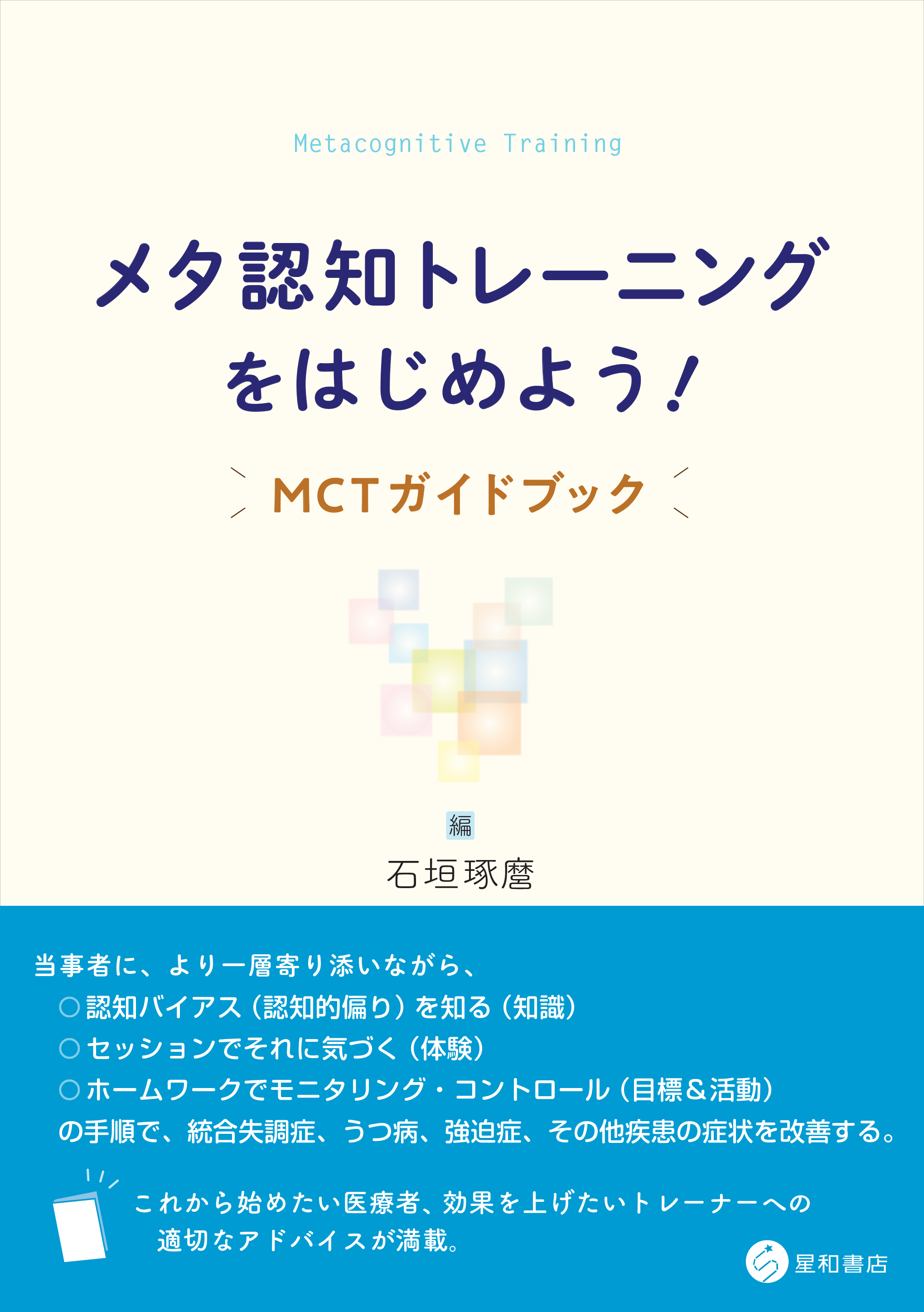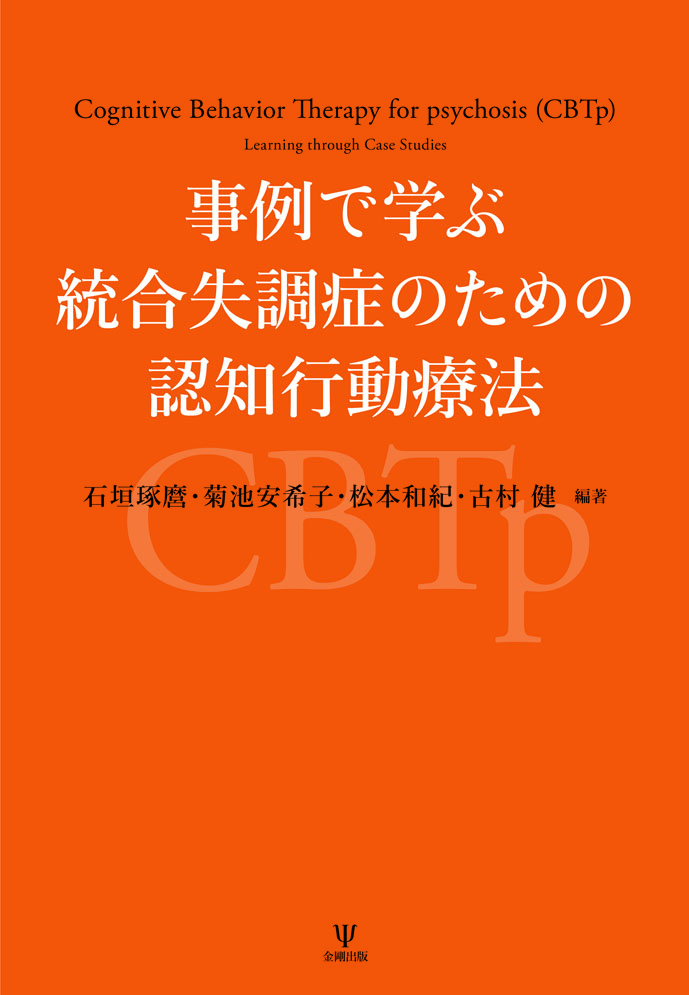
Title
Utsubyō no tame no meta ninchi training (D-MCT)
(Metacognitive Training for Depression - Explanation and Implementation Manual)
Size
172 pages, B5 format
Language
Japanese
Released
February 28, 2019
ISBN
9784760821815
Published by
Kaneko Shobo
Book Info
See Book Availability at Library
Japanese Page
This book is a translation of the implementation manual for Metacognitive Training for Depression (D-MCT) developed by Prof. Dr. Lena Jelinek of the University of Hamburg in Germany.
Metacognition as a psychology term was first used in the 1970s by Dr. James H. Flavell, an American developmental psychologist. Metacognition is often defined as “thinking about thinking” and refers to psychological functions with complex interactions. Flavell considered metacognition as having four components: (a) metacognitive knowledge, (b) metacognitive experiences, (c) metacognitive goals (or tasks), and (d) metacognitive activity (or strategies). Of these, metacognitive knowledge refers to the broad range of knowledge encompassing human tasks, goals, activities, and experiences. It would include, for example, self-awareness or beliefs, such as thinking, “I am good at calculations but do not do well with geometry,” or “It is the nature of humans to compare achievements.” Metacognitive experiences are reflections on one’s own cognitive processes and are said to incorporate “eureka moments” (Aha-Erlebnis). Metacognition influences the depth and effectiveness of learning and has long been central to the field of educational psychology.
The clinical aspect of metacognition, awareness of both the shortcomings and strengths of one's cognitive abilities, has also attracted attention in clinical psychology and psychiatry with expansion of cognitive psychological research and cognitive therapy for mental disorders. D-MCT is the first type of group therapy to place importance on metacognitive knowledge acquisition and metacognitive experiences.
D-MCT has been validated in Germany through randomized controlled trials (RCTs), but it cannot be said to have been sufficiently disseminated in other countries. This book is the first manual of its kind to be published outside of Germany. In cooperation with the University of Hamburg, the author hosts an MCT-J network (http://mct-j.jpn.org/) to disseminate information and promote research on MCT. Thanks to nationwide workshops sponsored by this network, growing numbers of medical practitioners are beginning to apply D-MCT within Japan. In 2019, Prof. Dr. Lena Jelinek, who developed the therapy, was invited to the University of Tokyo’s Komaba campus to hold a workshop using this book as a text.
The publication of this book and spreading the word about D-MCT are important not only for the dissemination of new psychosocial support methods, but also for future research on the therapeutic effects in Japan. There are so many diverse factors to take into account that researching the effects of psychotherapy is difficult. Nevertheless, D-MCT is a well-structured therapy, and with this kind of manual and training workshops based on this manual, many of the difficulties encountered in research can be overcome. The scientific validation of the effectiveness of D-MCT will surely advance evidence-based practice in Japan.
(Written by ISHIGAKI Takuma, Professor, Graduate School of Arts and Sciences / 2020)



 Find a book
Find a book



